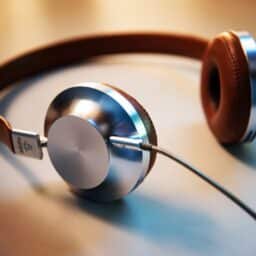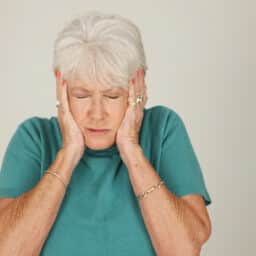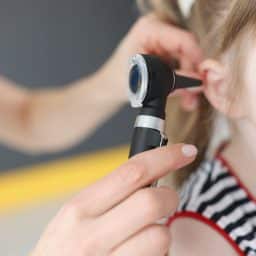What Are The Differences Between Conductive and Sensorineural Hearing Loss?

It may surprise you to learn that there are actually different types of hearing loss. Let’s examine the differences between conductive and sensorineural hearing loss, including the potential causes and treatment options for each. Sensorineural and Conductive Hearing Loss Have Different Causes While both impact your ability to hear, sensorineural and conductive hearing loss have…
Central Tucson Location Opens March 7th!
We are excited to share that our new Central Tucson location is near completion! We look forward to welcoming patients at 6206 E. Pima St., #4 starting on Tuesday, March 7th! Please help us spread the word to friends and family who live or work in the area and may benefit from our services. Please…
Can Colds Cause Hearing Loss?

There’s a reason they call it the common cold. According to the Centers for Disease Control and Prevention (CDC), “adults have an average of 2-3 colds per year, and children have even more.” Most of us are familiar with nasal congestion, runny nose, cough, sore throat and other traditional symptoms that come with getting a…
New Central Tucson Location – Opening Early 2023

The team at Arizona Hearing Specialists is pleased to announce the opening of a fifth location in the Central Tucson area at 6206 E. Pima St., #4. AHS looks forward to opening the new Central Tucson location in early 2023. Patients will be provided with the same access to service that they have come to…
Are My Headphones Too Loud?

The World Health Organization (WHO) reports that, “Over 1 billion young adults are at risk of permanent, avoidable hearing loss due to unsafe listening practices” when listening to music and other media through earbuds and headphones. Below we review how to tell if you’re at risk of noise-induced hearing loss and provide tips for listening…
What Do Fluttering Sounds in the Ear Mean?

Have you ever experienced a fluttering sound in your ear? Some people describe it as having butterfly wings flapping in their ears, while others say it’s more akin to helicopter blades. Though it may sound odd, it’s actually a symptom of several common conditions. Is Fluttering in the Ear Dangerous? While it’s undoubtedly a strange…
Daycare and Children With Severe Hearing Loss

All parents want to make sure that their child’s daycare facility is able to provide proper care and meet all of their needs. If your child has severe hearing loss, you may be curious as to how daycares can accommodate them. Reasonable Accommodations Required by Law The Americans with Disabilities Act (ADA) ensures that childcare…
Learn About the History of Audiology Awareness Month

We have exciting news! October is Audiology Awareness Month, which means there’s no better time to take the initiative to care for your hearing health than now. To start the month off, we’re reviewing the history of Audiology Awareness month in this post. The History of Audiology Awareness Month It all started back in 2008,…
Working Around Cars May Increase Your Risk of Hearing Loss

The first cause of hearing loss is old age, while the second leading cause of hearing loss is exposure to loud noises. This may be due to hobbies or your occupation. One occupation, particularly at risk of noise-induced hearing loss, is auto repair shop and auto parts factory workers. What Is Noise-Induced Hearing Loss (NIHL)?…
How to Help Your Child with Hearing Loss Navigate Social Situations

The Centers for Disease Control and Prevention reports that approximately 15% of school-age children have low- or high-frequency hearing loss of at least 16 decibels in one or both ears. If your child is among this population, you may be concerned about their social development. This post reviews tips on how to help your child…